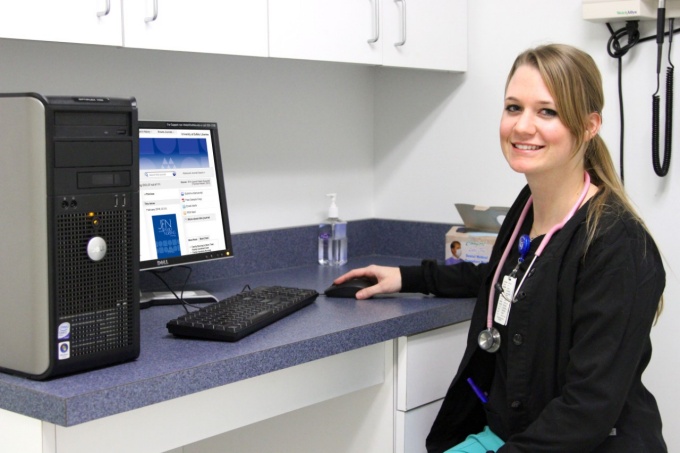From RN to DNP: Why I Chose Graduate Education (and What I’ve Learned)
BY HOLLYANNE BLY, RN, BS TO DNP STUDENT | AUGUST 1, 2017

Hollyanne Bly is expanding her clinical knowledge and skills in the Family Nurse Practitioner Program.
As much as I enjoy working as a nurse, I knew even before graduating from UB School of Nursing’s bachelor's degree program that I would continue toward higher education as a family nurse practitioner (FNP). I wanted to expand on the knowledge and skills I built in my nursing and educational background to take care of patients in other ways.
How did you know you wanted to apply for an early assurance DNP program?
Throughout the undergraduate nursing program, UB’s staff and professors instill in their students a higher sense of obligation to continue their education. What is unique about UB is that they are the only program in the WNY area to accept students to the doctor of nursing practice (DNP) program immediately after graduating with their bachelor's degree in nursing. Many other schools require at least one year working as an RN before you can apply to their program – in the early assurance DNP program, you build experience working as an RN while continuing your education as a graduate student.
What’s it like to go from BS/BSN to DNP?
In my experience, the instructors try to enable a smooth transition from your new role as a nurse to thinking like a provider. You are required to start school part-time during the first year in order to establish yourself first and foremost as a nurse and to experience the responsibilities in your role as a health care professional. Clinical begins the summer of your second year in the program, and while rotations are centered on primary care, you also gain clinical experience in pediatrics and women’s health. Clinical is typically one day per week, but more hours are required as you get further along in the program.
What is the most difficult aspect of transitioning from RN to doctor of nursing practice?
I am currently working per diem at Sisters of Charity Hospital. It is a unique experience to work as an RN while being in the clinical setting as a provider. It definitely gives you a great appreciation for both roles. One thing to keep in mind throughout the course of the program is that you will need to think outside your RN skills and begin to think like a provider. I think this may be the biggest challenge the early assurance program students face.
How can DNP students be successful in their program?
I am now in my final year of the FNP program, where I will begin to work on my capstone project. The instructors at your school will provide you with the guidance needed to not only help you succeed in the coursework, but also empower you with the necessary skills to work in the field. I have learned throughout this process to manage time effectively between classes, work, and clinical; to prioritize and organize my lifestyle to accommodate the demands of my degree program; and to make sure I do not overwhelm myself. It’s very important to set aside time for things outside of school.
Who should get a DNP?
If you have the desire and passion to continue your education and you’re ready to put in the hard (but rewarding) work that lies ahead, I say go for it! I encourage anyone who feels that this is their calling to further research DNP programs to find out what it takes to be able to be a graduate nursing student and a nurse practitioner.